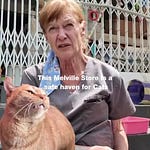If you scroll through Instagram or TikTok, and it’s easy to think being an influencer is all perks and free products.
A PR hamper here, a sponsored trip there, maybe a fancy dinner in exchange for a post.
But behind the filters, the South African Revenue Service (SARS) is watching- and in their eyes, those freebies may come with a tax bill.
Perks, not gifts
Tax expert Jashwin Baijoo breaks it down: “Although it’s not funds being received into your bank account, it really is more a case of a value being attached to that perk, and it being taxed accordingly.”
That means a meal worth say R800, a gadget sent for a review, or even a luxury trip provided by a brand is not a gift.
It’s income. And if you’re earning enough, it could tip you over the VAT threshold, meaning additional tax obligations.
The audit shadow
SARS is increasingly using data analytics and AI to track income that doesn’t match lifestyles. Baijoo explains the risks: “In the case of an audit, SARS can go back five years. They are legally empowered to request bank statements — not just locally, but offshore too. Every deposit is flagged as income generated.”
The consequences are steep. Penalties can reach 200% of the capital tax owed, and criminal charges aren’t off the table.
Baijoo advises proactive measures: “A voluntary disclosure application may be submitted to SARS under the correct legal guidance. The benefit is protection from penalties being imposed, and protection from criminal charges being laid.”
The key is timing. Once SARS identifies undeclared income before you come forward, that relief vanishes.
Foreign earnings are not exempt
Influencers earning from abroad — through PayPal, Wise, or even cryptocurrencies — still fall under South Africa’s tax umbrella.
“For South African residents, your foreign income follows your residence rules. Regardless of whether it’s paid from Mauritius, Ireland, or elsewhere, it’s fully taxable in South Africa.”
Double taxation agreements exist to prevent the same income being taxed twice, but influencers still need expert guidance to navigate these rules safely.
The fact check
The reality is clear: the influencer economy is booming, but SARS is catching up. Freebies, once seen as perks, are increasingly considered taxable income.
The stakes are high, especially for influencers juggling cash payments, international earnings, and in-kind perks.
What looked like a free lunch may no longer be so free.
So if you are an influencer, track every perk, declare everything, and get the right advice — or risk paying more than you ever thought you would.













